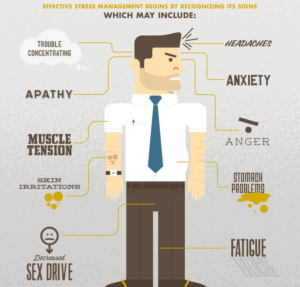HEY GUYS – WHERE ARE YOUR BALLS?
Stress is normal. There is nothing to be ashamed of, it is a part of our everyday lives.
Why then is there such a stigma attached to it?
Stress is responsible for the highest percentage of sickness absence in the UK and it costs our economy mega bucks in lost productivity. In 2016 the Mental Health Foundation reported that 75% of suicides were men compared to 25% of women. More women admit to being stressed than men and the statistics suggest that women are more likely to do something about it rather than bottling it up until suicide seems like the only option.
Sadly, many men are reluctant to talk about stress, especially at work. There seems to a view that it either does not exist or if it’s ignored it will go away! The stigma attached to stress is the perception that it is seen as weakness if someone is struggling. This is not true, and stress can affect anyone at any level of an organisation. We all experience some of life’s stressors at some point and it is how we deal them that’s important before they develop into a mental health problem.
Look at the picture below. Few people realise or recognise that anxiety and stress affect the body – what the mind supresses, the body expresses.

www.legendsofmen.com
When we feel stressed or threatened in any way, our bodies automatically go into Fight or Fight mode, but we do not actually do either – we freeze.
Today’s ‘threats’ are often far less serious than confronting a dinosaur but far more frequent. The stress hormones – adrenaline and cortisol are released into the body ready for action. They are harmful when they are not released and can damage the immune system which makes us more susceptible to serious illness and a shorter life expectancy. A calm mind is a calm body.
Where is the sense in letting stress control your life? There is a clear difference between stress and pressure – simply put, pressure goes away, but stress accumulates. Think of sitting in a traffic jam – It feels “stressful” – you are tense and agitated, annoyed for not leaving earlier, worried about being late for a meeting, you feel out of control…..as soon as you reach your destination, the feelings dissipate. However, if you are under continuous pressure, it can tip into stress. We are exceptionally good at absorbing stress – it becomes our norm. Think of a sponge absorbing water – sooner or later it needs to be wrung out.
Stress turns into distress then burnout then illness as well as mental health problems.
It doesn’t matter what causes your stress, it can be at work at or home. Either way it is going to upset your equilibrium, and prevent you operating at full capacity, both mentally and physically.
The important thing is to understand your stressors and recognise the warning signs while you can do something about it. Watch out for:
- Poor concentration
- Difficulty making decisions
- Memory lapses
- Becoming rather vague
- Easily distracted
- Less intuitive & creative
- Worrying
- Negative thinking
- Depression & anxiety
- Poor judgement
Are you feeling?
- Irritable?
- Tearful?
- Having Mood swings?
- Extra sensitive to criticism?
- Defensive?
- Feeling out of control/overwhelmed?
- Lethargic?
- Angry?
- Frustrated?
- Unsure, doubting yourself?
- Out of control?
Not to mention aches and pains, not sleeping, continuous colds, drinking more …..In a nutshell, if you are feeling OVERWORKED, OVERSTRETCHED, OVERWHELMED, OVERTIRED – then you are UNDER stress!
So are you going to wait until you are ill or your relationships are damaged or are you going to show us your balls and do something about it?!
Talking is a good start but without coping strategies, you won’t be able to move forward. The culture or personality of the workplace is crucial to change. Does your workplace have a stress or wellbeing policy? If not, why not? It is a requirement under the Health and Safety at Work Act 1974.
Does your workplace hold social events? Happy people = Happy places. Is management supervision in place? Do you have clear direction? Are you aware of the HSE Stress Management Standards?
If the answer to all these is negative – bite the bullet and suggest to your boss or HR that some stress management training would be useful and fruitful. Government statistics show that stress awareness training can reduce sickness absence and that in turn reduces absence and recruitment costs which improve the bottom line.
Contact – Ruth Fogg – Stressworx ruth@stressworx.co.uk
